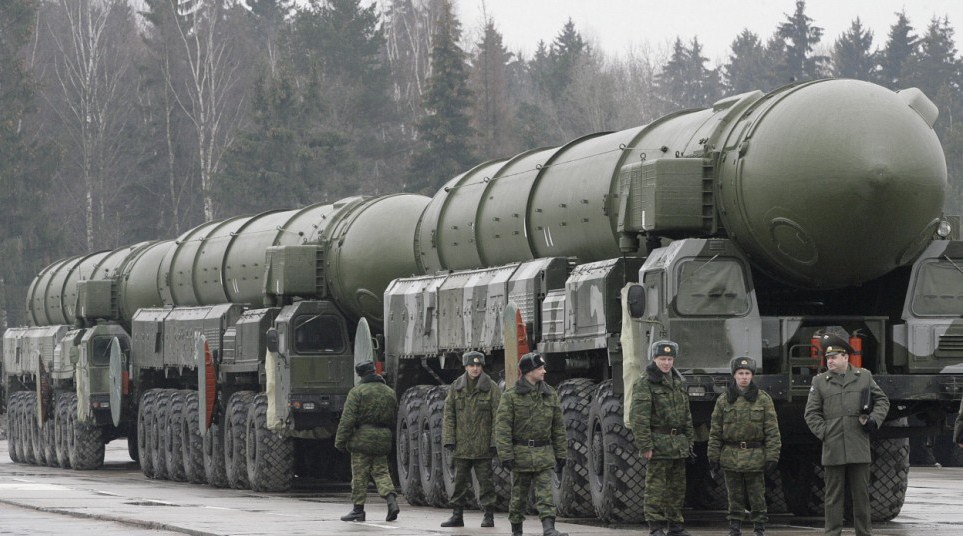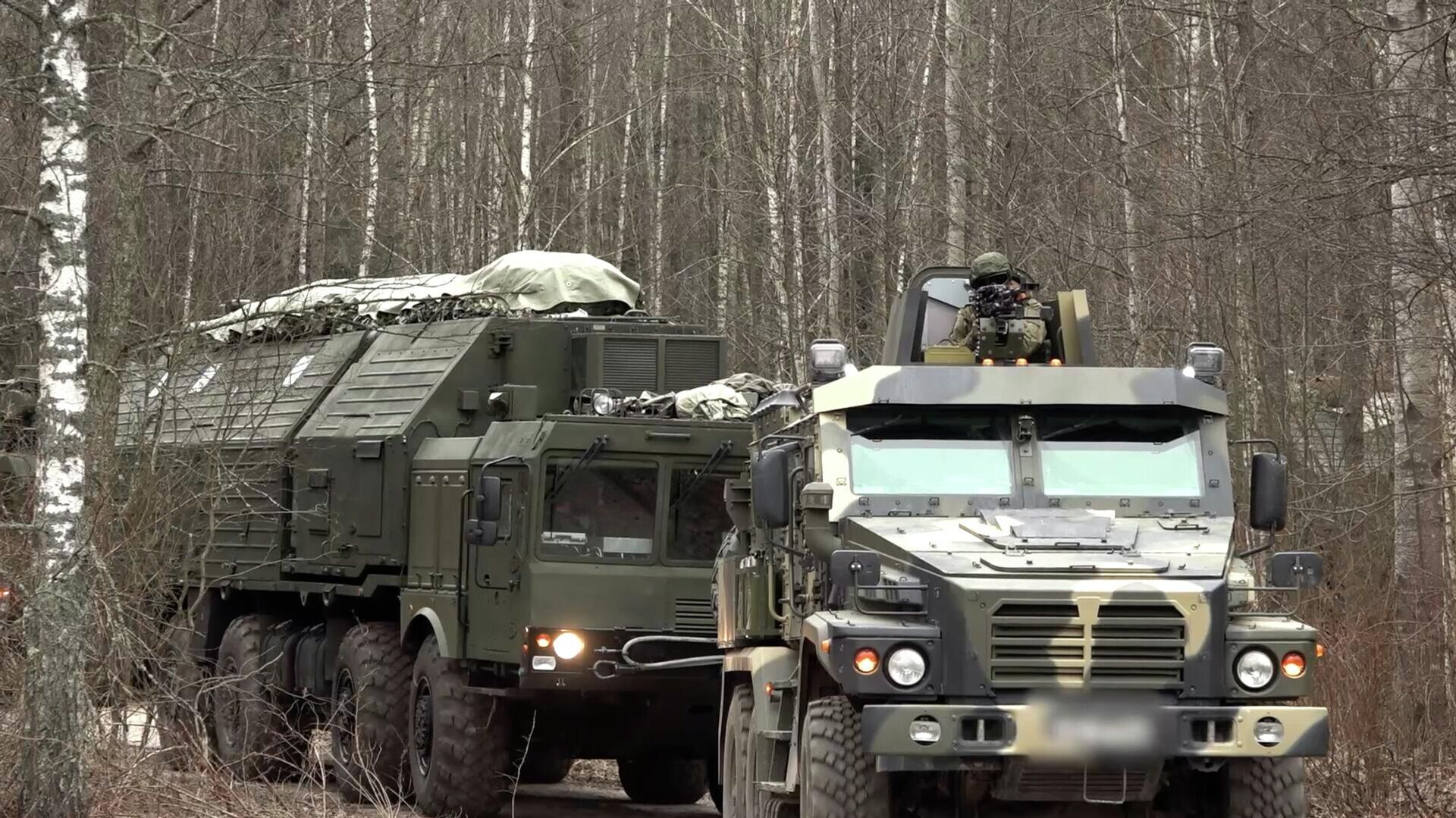
Patrushev Signals a Shift in Russian Nuclear Doctrine
Patrushev Signals a Shift in Russian Nuclear Doctrine
On October 8 Nikolai Patrushev, the Secretary of the Russian Security Council and the former Director of the Federal Security Service (FSB), signaled planned changes to the country’s nuclear doctrine. He explained in Novosibirsk that this will be reflected in the new military doctrine titled: “The New Face of the Russian Armed Forces until 2030,” currently being developed by the General Staff and expected to be approved by the end of the year. “In respect to the possibility of preventive or nuclear strikes we will formulate some provisions that will be somewhat different from those contained in the current doctrine,” Patrushev said (RIA Novosti, October 8). Naturally, these comments provoked speculation over what these changes might entail.
Patrushev also gave an interview to Izvestiya on October 14 in which he said that the new military doctrine will contain amended terms for the use of nuclear weapons in repelling aggression with the use of conventional weapons in a large-scale, regional or even local war (Izvestiya, October 14). “If there are weapons of mass destruction, then one needs to be ready to use them,” Patrushev told journalists in St Petersburg October 22 (Interfax, October 22).
Initially his remarks coincided with the visit to Moscow by U.S. Secretary of State Hillary Clinton, though his later clarification in Izvestiya suggested that he also intended to gauge the foreign and domestic response. Although the coverage was relatively muted in the western media, paradoxically it proved most controversial within Moscow. Indeed, the domestic reaction ranged from those advocating no change to the nuclear doctrine to others suggesting that such shifts simply mirrored U.S. nuclear policy. Yet, clearly the domestic “debate” is subject to careful management. Colonel-General Viktor Yesin, the former Chief of Staff in the Russian Strategic Rocket Forces (RVSN), explained that since the draft military doctrine is stamped “for official use,” comment on Patrushev’s remarks is severely limited (Nezavisimaya Gazeta, October 9).
In August, Colonel-General Anatoly Nogovitsyn, the Deputy Chief of the General Staff and co-chairman of the panel drafting the document said that it will contain open and closed parts, with the latter dealing with among other issues “the use of nuclear weapons as an instrument of strategic deterrence.” Nogovitsyn noted that Western nations classify portions of their military doctrines, and he admitted that a careful study was made of U.S. and NATO documents (Interfax, August 11).
Alexander Sharavin, the Head of the Institute for Political and Military Analysis in Moscow advocated maintaining the current provisions on nuclear weapons, as outlined in the military doctrine in 2000. “I believe that the military doctrine adopted in 2000 is outdated and contains a number of drawbacks, but I would certainly not change the wording of the provision on the use of nuclear weapons,” he explained. Significantly, Sharavin, who once led a group on the development of military doctrine in the General Staff, said that the existing doctrine is sufficiently comprehensive in this area. Since the nuclear issue is also a political tool as well as an element of strategic deterrence, he believes that by announcing the possible use of such weapons in a local conflict its role will be devalued (Ekho Moskvy, October 14). Others, speaking on condition of anonymity to the Russian press, suggested that these clauses should be “edited out” of the draft doctrine.
However, according to its existing military doctrine, Russia can initiate a nuclear response in the context of being attacked with weapons of mass destruction, in either a global or regional war. It might also use them in the following circumstance:
“The Russian Federation will not use nuclear weapons against states party to the nonproliferation treaty that do not possess nuclear weapons except in the event of an attack on the Russian Federation, the Russian Federation armed forces or other troops, its allies, or a state to which it has security commitments that is carried out or supported by a state without nuclear weapons jointly or in the context of allied commitments with a state with nuclear weapons” (Russian Military Doctrine, www.scrf.gov.ru, April, 2000).
Patrushev might have signaled lowering the nuclear threshold by extending the types of conflict that could result in a nuclear response to include local wars. Nevertheless, some regard this innovation as merely representing a logical intensification of its nuclear doctrine that has been underway since 1993. In the 1993 doctrine, nuclear weapons were only considered in connection with a global war, whereas this was extended to include a large-scale conventional attack in the 2000 version. This reflected fears over a possible conventional attack on Russia, exploiting its military weaknesses. The concept of extending nuclear deterrence in this way was advocated in an article in June 1999 in the leading military journal Voyennaya mysl, which argued that nuclear weapons could “de-escalate” a regional war. In late 1999 the former Chief of the RVSN, Colonel-General Vladimir Yakovlev, coined the phrase “expanded deterrence” to encapsulate the mission of the “de-escalation” of limited conflicts. In the context of this trend within Russian military doctrine, it appears that its nuclear doctrine is progressing towards a variation of the former U.S. strategy of “flexible response.”
On October 23 the Russian Foreign Minister Sergei Lavrov attempted to downplay the whole issue, by stressing the defensive nature of the new doctrine. In his view, no one needs worry: “There are no innovations here that would create any threats to anybody –that is, except for those who may be harboring insane plans of attacking the Russian Federation. I hope no one has such plans or ever will,” he said (RIA Novosti, October 23).
Patrushev’s disclosures about the new military doctrine occurred in a complex context, which not only involved ascertaining the level of hostility toward such changes, but were arguably intended to demonstrate that the Security Council is in overall charge of the drafting process. If the nuclear doctrine is altered, it might mark an important departure from traditional strategic deterrence, and convey an underlying warning against any country or groups of countries intervening in a future local war waged by the Russian military. Meanwhile, Moscow may want to use its nuclear deterrence as a way of ensuring that it can conduct conventional reform under peaceful skies.


